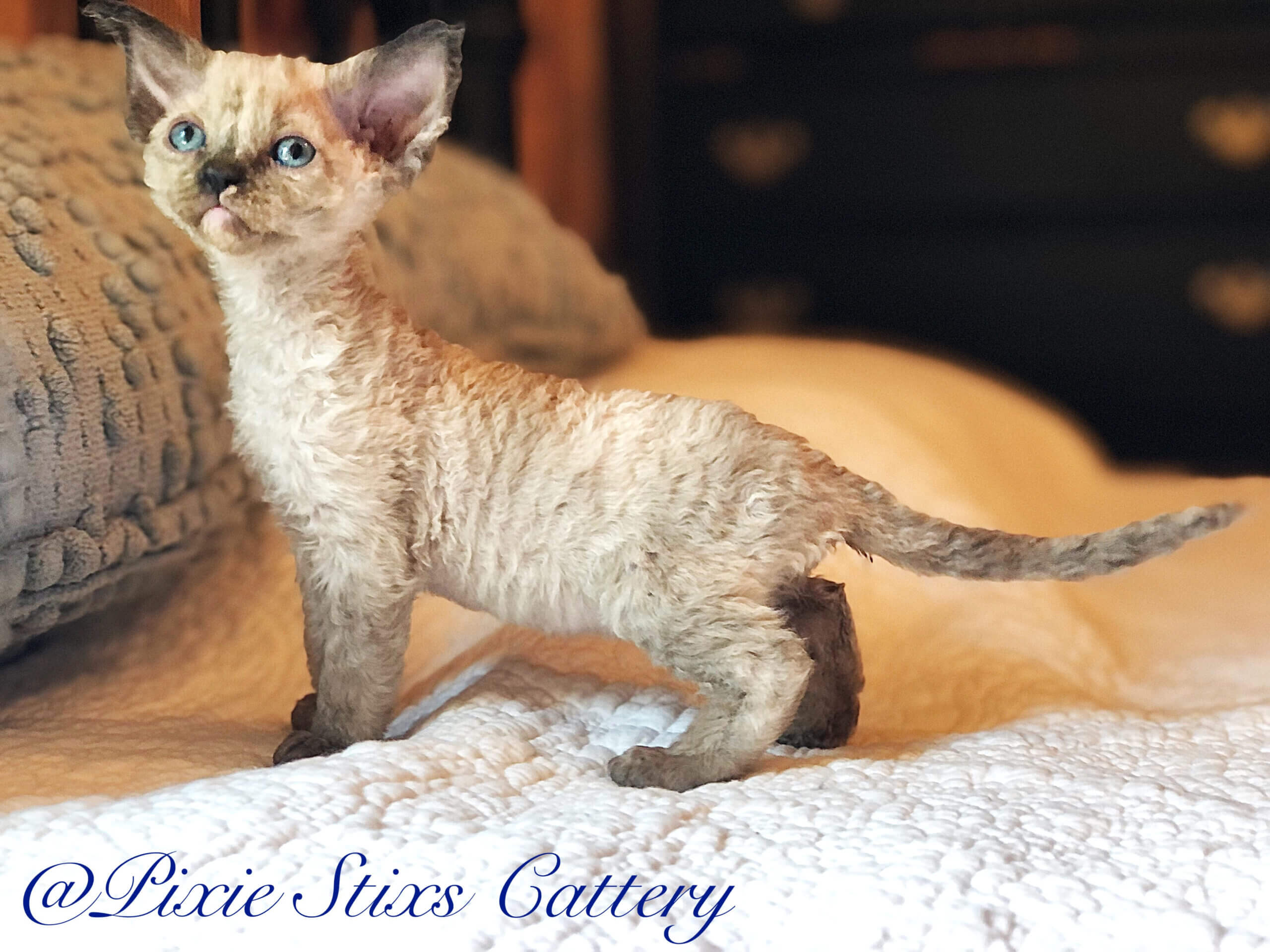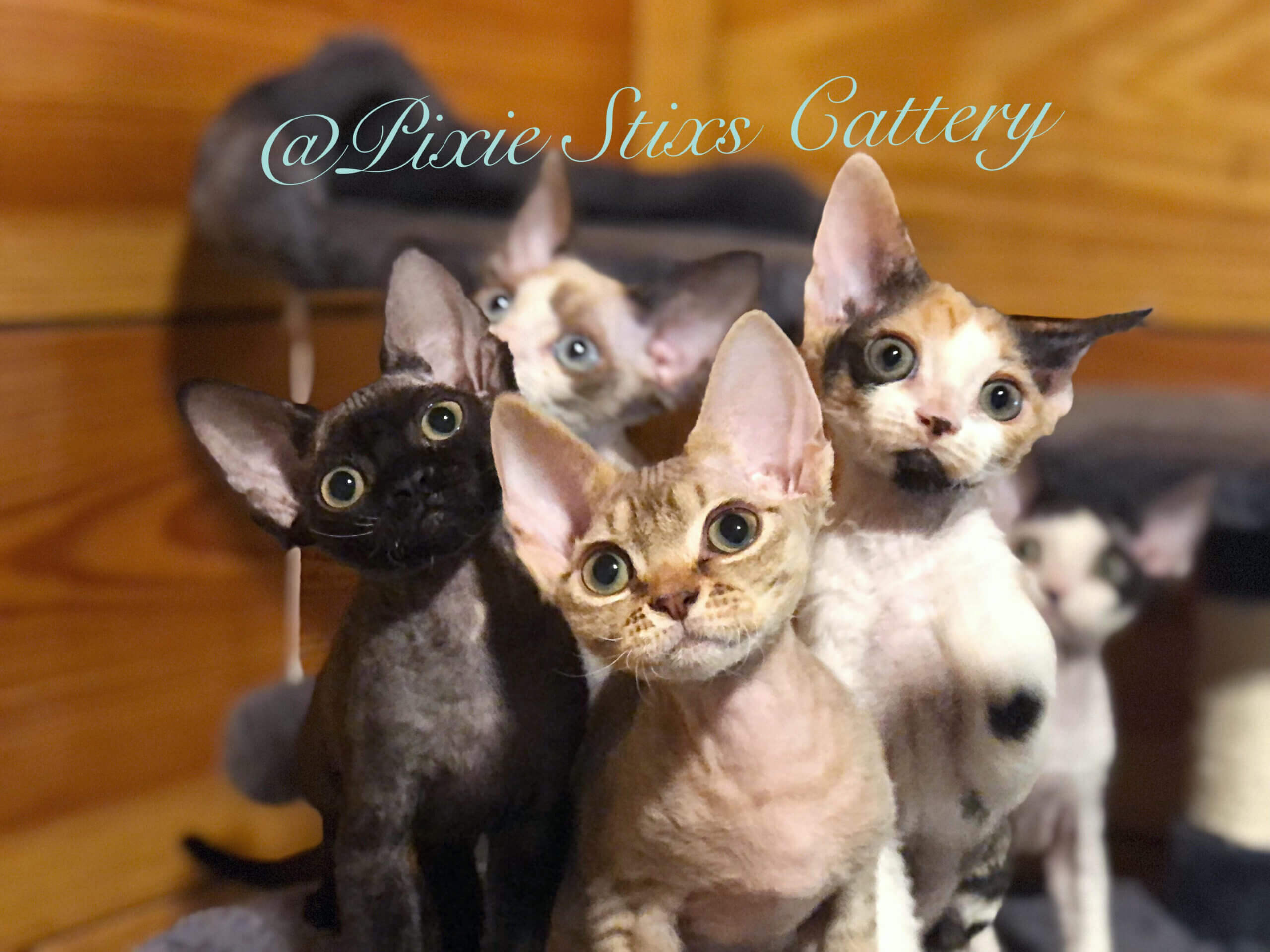The Devon Rex Breed Isn’t One Of “Those” Cats. I promise.
Whether you’ve seen them on TikTok or met one in the real world, the Devon Rex breed is unlike any other kind of cat. Even those who claim to not “like” cats can’t help but fall in love with this playful, intelligent, and people-centric breed.
They're hypo-allergenic! While no cat is completely allergen-free, the vast majority of people who are allergic to average cats are quite happy with a Devon Rex.
Devon Rexes are VERY human-centered. They bond with their family and are NOT a good fit for households that are gone for 8+ hours a day.
If you like dogs, but want a cat, then you might want to consider the Devon Rex. A lot of them love to play fetch, learn tricks, and even love belly rubs!




About Devon Rex Kittens Molting
You’ve spent weeks looking at photos of Devon Rex kittens. Their cute, curly-haired tiny bodies are ready to be snuggled!
But when you go to pick up your kitten…what the heck? Where did the curls go? Were you scammed?
Don’t panic and no, you were not scammed. Devon Rexes are a unique breed in more than a few ways, but especially in this. Devon Rex kittens go through a period called “Molting.” Kind of like when baby birds shed their initial coat in favor of flight feathers, Devon Rex kittens drop their kitten coat between 8-12 weeks of age.
You’re now probably wondering how long will it take for the coat to grow back in. This varies, but you can expect the full coat to appear around 1.5 years of age. And don’t worry–unless there’s a health issue, the coat is there to stay!
Eager to know what the final outcome will be? Ask your breeder for pictures of the parents, although keep in mind that genetics mean that you’ll find a general average of the two.
Are Devon Rex Cats Hypoallergenic?
Devon Rexes Are Perfect, But Not That Perfect
Sorry to break the possibly bad news that no cat is fully hypoallergenic. However, Devon Rex cats are actually some of the most low-allergy breeds out there. How is this possible? Their hair tends to absorb the oils containing the Fel d1 protein, while a regular cat fur lets it sit on top.
To increase your luck even further, you can regularly bathe your Devon Rex. It’s a toss up whether or not your cat will tolerate the bath, but if you make it a pleasant experience, they’ll definitely be more amenable than most breeds.
To add a bit more science to this conversation, Fel d1 protein is found in cat dander, saliva, urine, and other bodily fluids. How this affects you or someone you love is entirely dependent on the sensitivity of the allergies. They aren’t really the kind of breed that sheds, so that helps even further.
If you’re highly allergic to cats, this still may not be a good fit. See if you can spend time around some to test the waters first.

